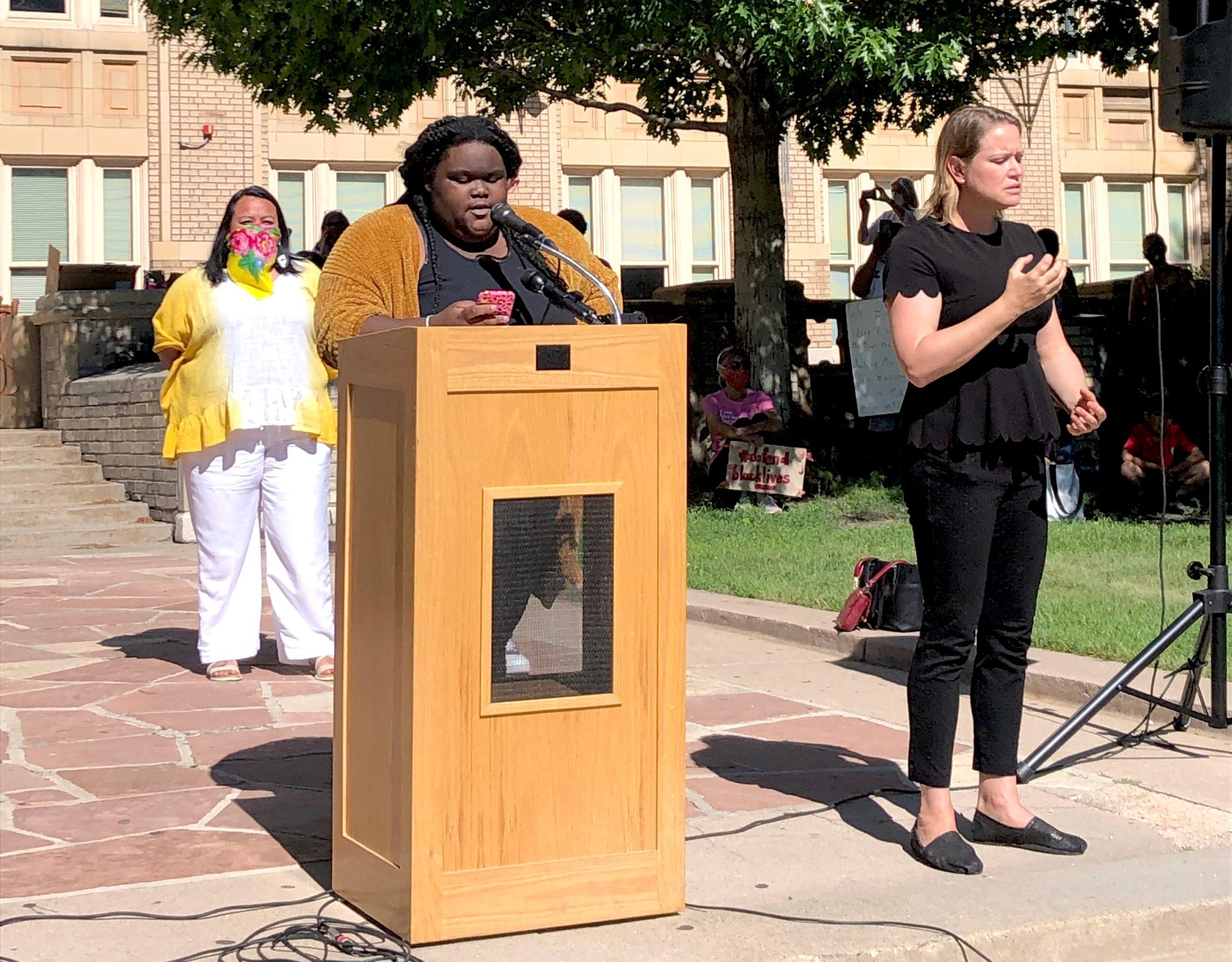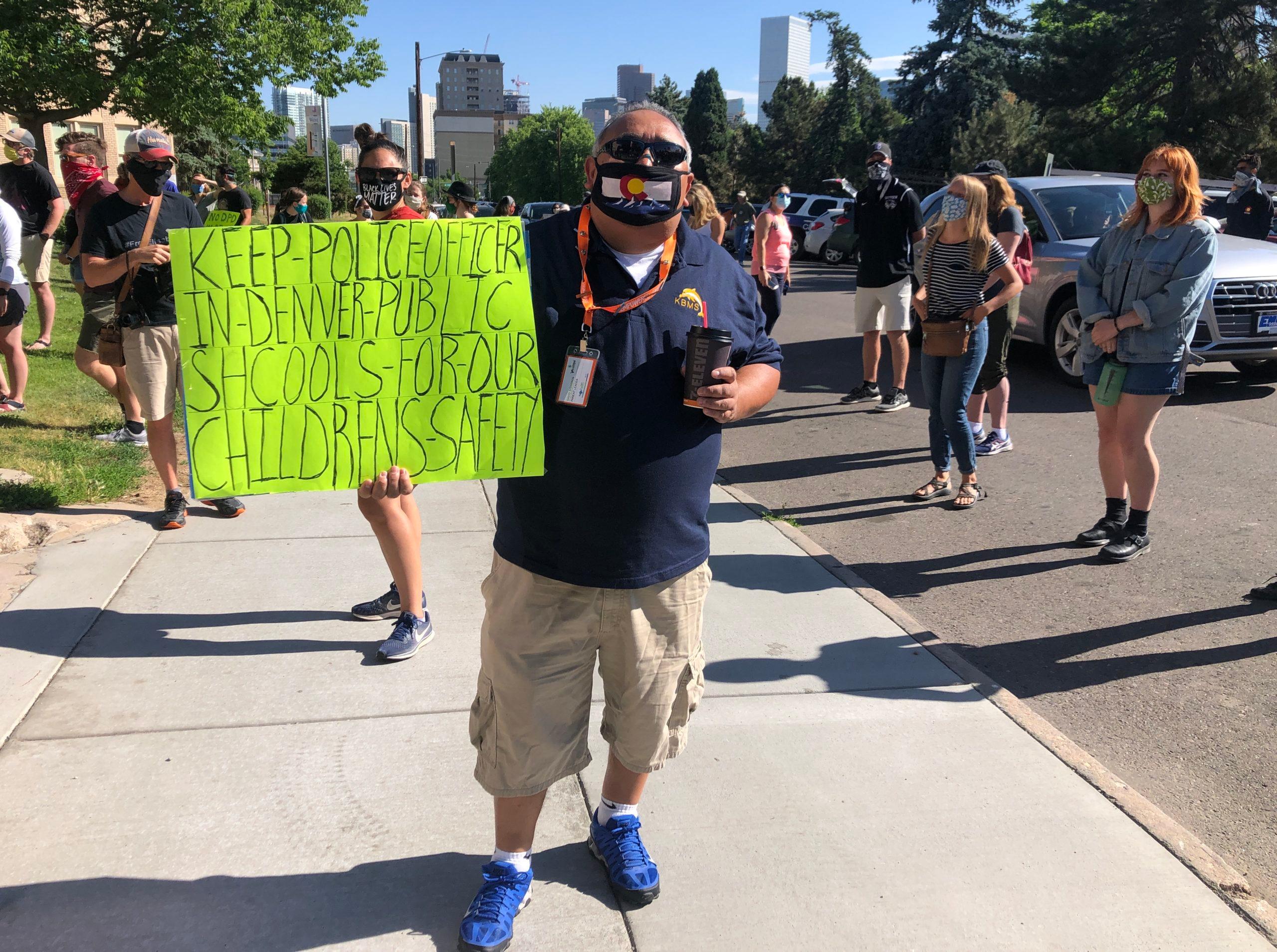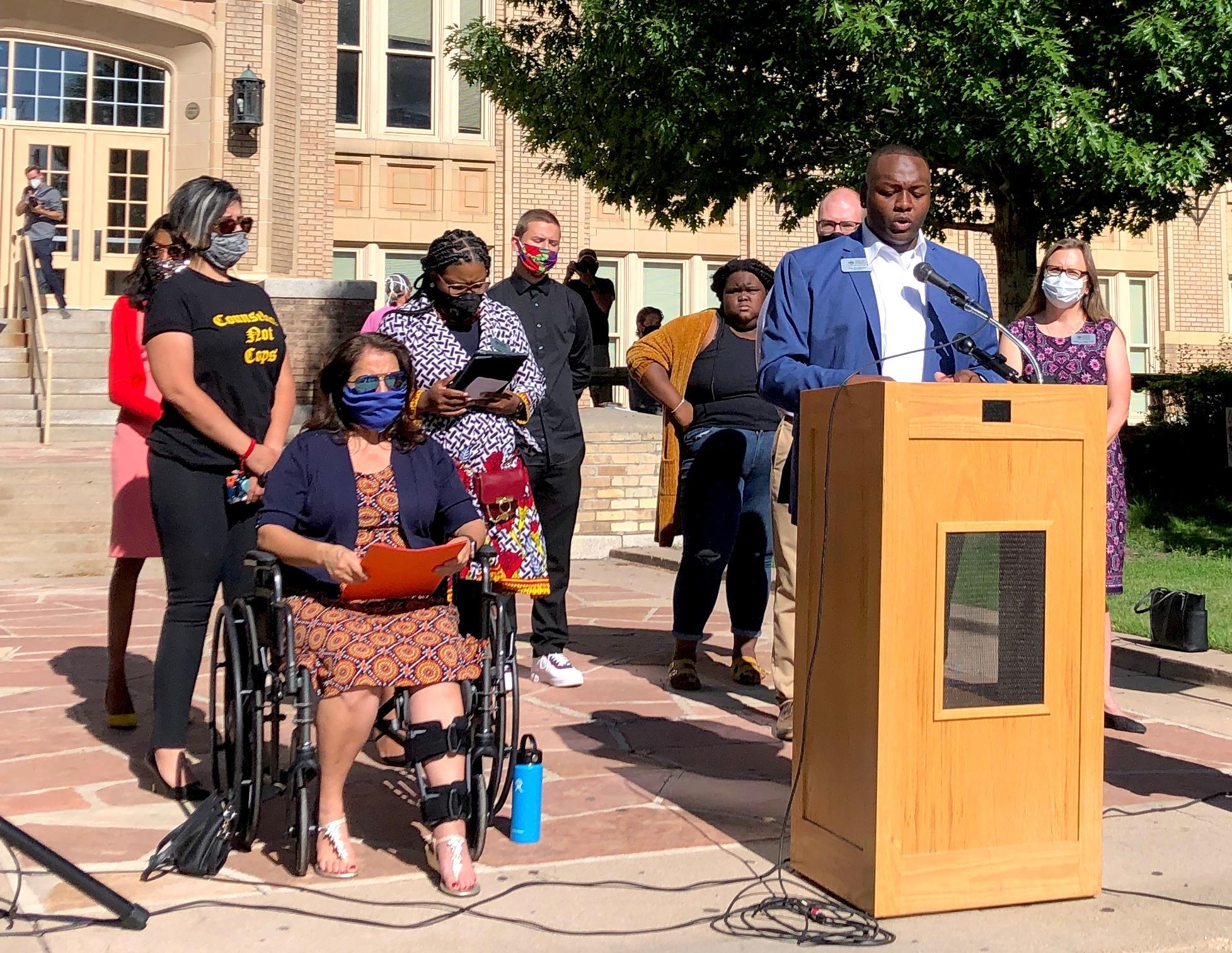Students, school board members and Denver Public Schools Superintendent Susana Cordova signaled their intent to chill the school system's relationship with the Denver Police Department on Friday from the steps of West High School in La Alma where 51 years earlier Chicano students protested and were met with police violence.
Reformers calling for changes to the criminal justice system want to see 18 "school resource officers" -- Denver police officers who monitor the halls of various schools -- out of DPS buildings. Tay Anderson and Jennifer Bacon, two Black members of the Denver School Board, are leading the effort, which will require a resolution directing Cordova to end its agreement with DPD.
The resolution has not been finalized and is not available to the public. Cordova would be responsible for ending the agreement between DPS and DPD if and when it is approved by the seven-member school board, she told Denverite.
Friday's announcement came after more than a decade of demands for the removal of officers led by Padres & Jóvenes Unidos, a group that advocates for equity in the education system. Backed by academic studies, Padres and others contend that in-school police officers create a "school-to-prison pipeline" that sends students, especially studens of color, on paths that increase their chances of getting stuck in the criminal justice system. More than 4,500 students have been arrested or ticketed by Denver police officers on school property since 2014. Most were people of color.
"There are many ways in which our public institutions regularly harm our children and youth, but there may be no better example of something that harms our kids than over-policing our students with harsh discipline policies," said Elsa Oliva Rocha, executive director of Padres & Jóvenes Unidos. "As an organization, we call for the removal of all police from DPS."

Anderson, 21, has led several protests in response to the killing of George Floyd in police custody over the past week. He campaigned on getting officers out of public schools and replacing them with mental health professionals. The unrest of the last week fast-tracked the resolution, he said, before adding that he saw DPS students victimized by chemicals and foam bullets at the hands of police during the Floyd-inspired protests.
"I think the events of this week kind of set it off," Anderson said. "We can not look our students in the eyes and say that we believe your lives matter but we're welcoming you with a law enforcement officer and not mental health support. We never gave a clear timeline on when, but this was the straw that broke the camel's back."

David Sisneros's kids go to Kepner Beacon Middle School in Westwood. He sees Denver police officers as a protective force in a world where "violence is everywhere."
"(Our school resource officer) is doing a wonderful job," Sisneros said. "Our suspensions are very low, our fights are low. I just feel that some schools actually do need the DPD, especially the lower-income neighborhoods which are very rough."
Johni Palmer, a Black woman, just graduated from East High School and will attend Metropolitan State University in the fall. She plans to double-major in political science and criminal justice. For her, removing police from schools is necessary, but it's just one cog of a larger system.
She does not see DPD as a protective force.
"For the past four years, I saw time after time after time Black and Brown bodies treated as hazards before we're treated as human," Palmer said. "Time after time after time, I've seen Black and Brown bodies beg to be acknowledged in our classrooms, beg to be listened to beg not to be arrested and beg to be prayed for. Protected by my tokenized status, I yelled from the sidelines to end the school to prison pipeline while playing into systems that fostered its existence, the key word being systems."
The finalized resolution with details about how the future of the relationship between DPD and DPS will be available to the public Monday, Anderson said. No matter what the outcome, DPD will still be at the school system's disposal when necessary, he said.













